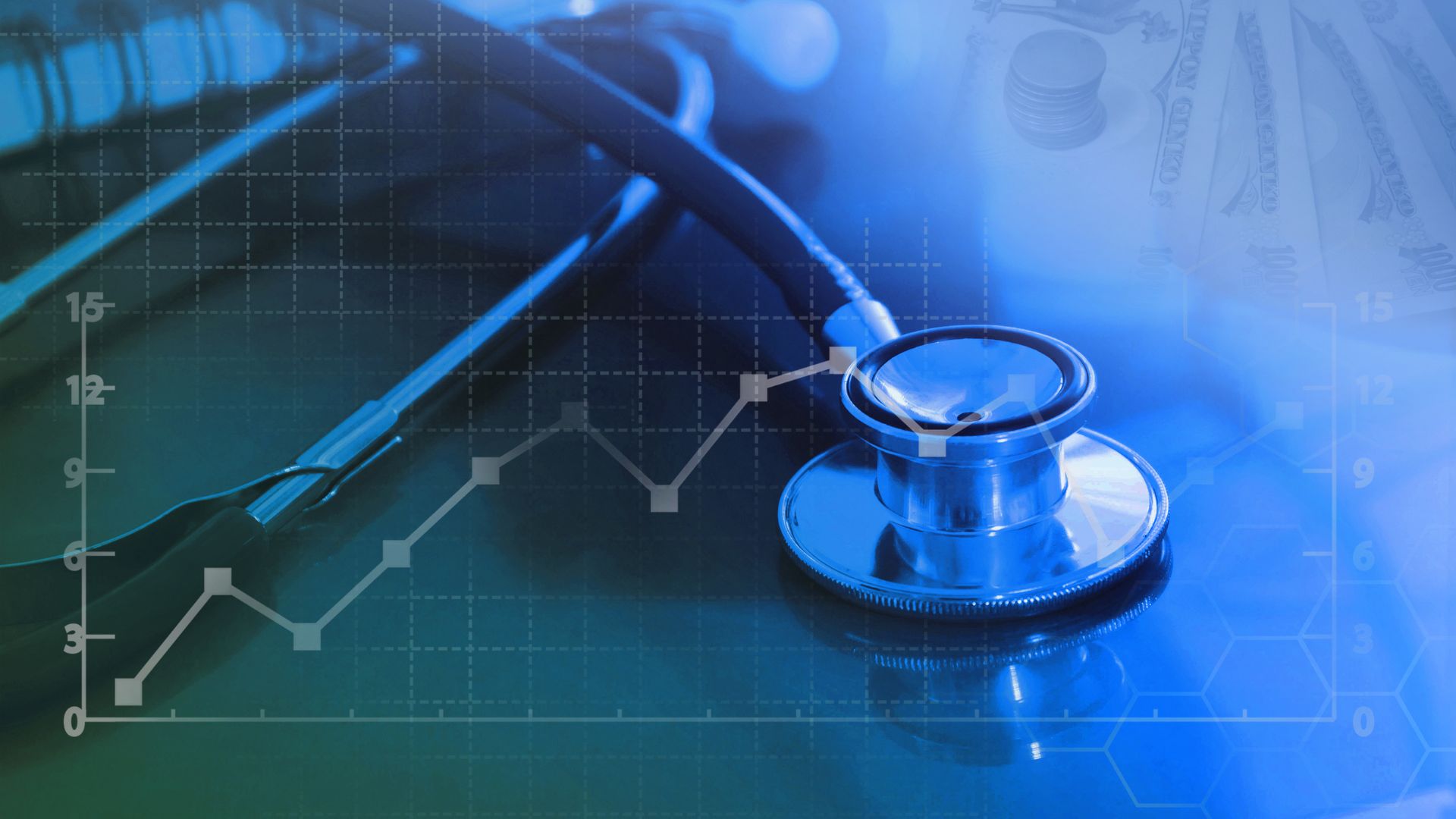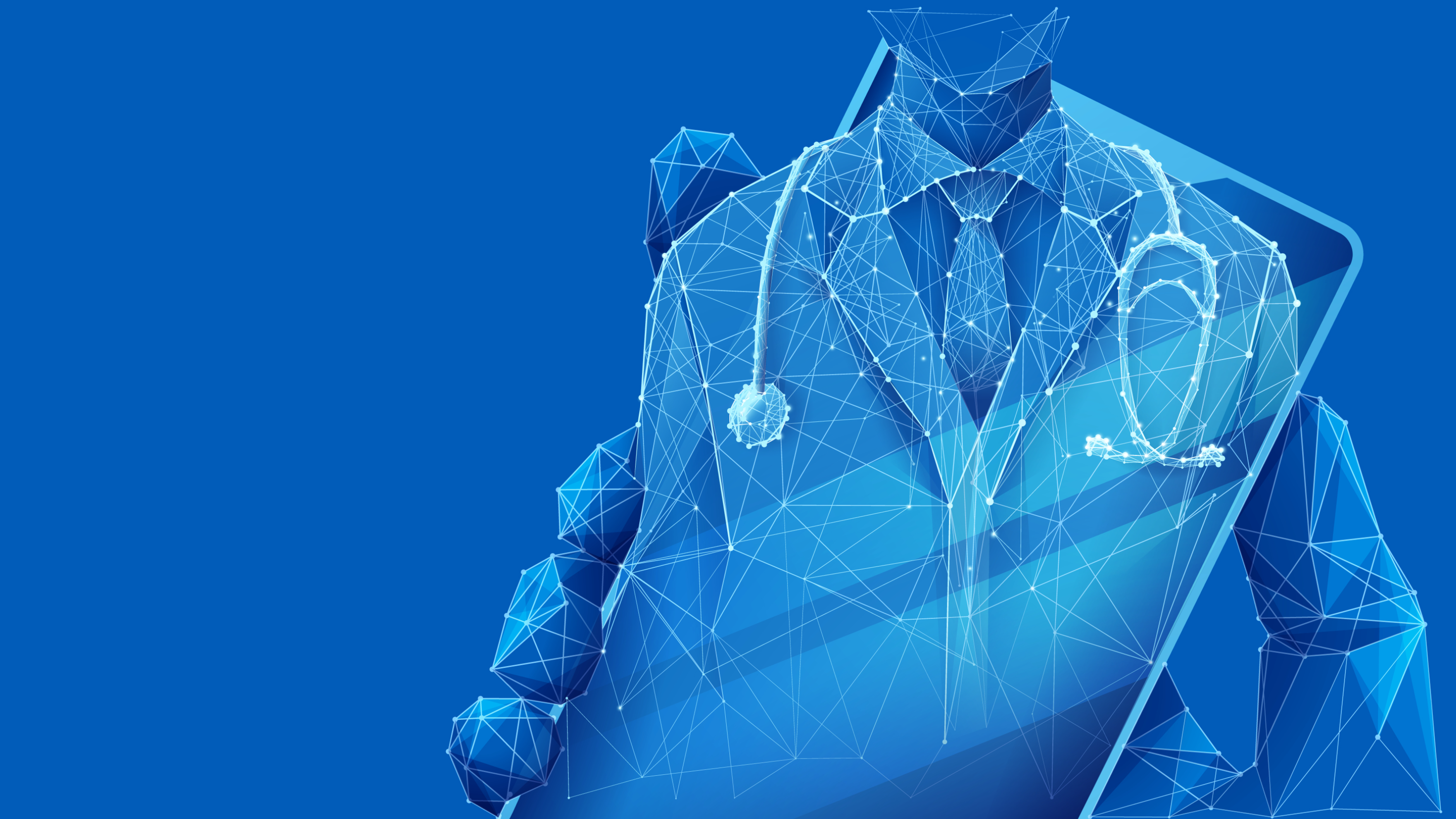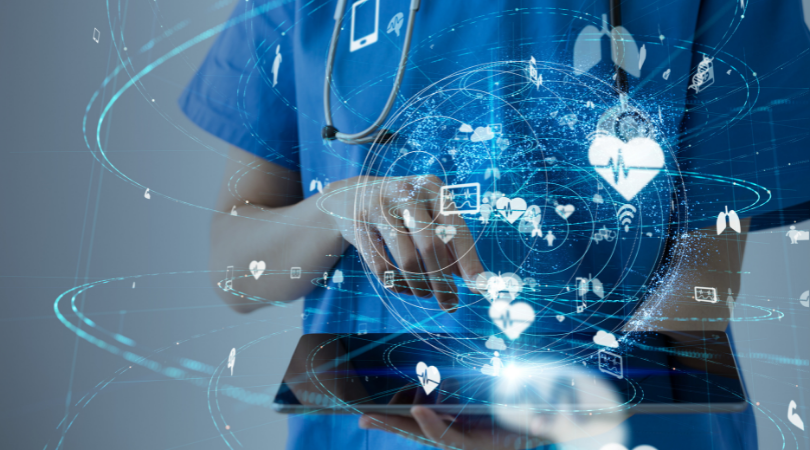Artificial intelligence, a key tool to improve the African health system
According to a new report by Novartis Foundation and Microsoft, investment in data and artificial intelligence (AI) will be a key tool for improving health systems during and after the COVID-19 pandemic in Africa.
Released on September 9, 2020, the report “Reimagining Global Health through Artificial Intelligence: The Roadmap to AI Maturity”[1] concludes that low-income countries may soon outperform high-income states in the adoption of AI-based health technologies. It also points out that African countries could be the fastest adopters of AI-based health technologies due to the lack of existing systems. However, it also warned that these countries stand to lose the most if governments don’t seize this opportunity and invest more in AI.
According to the 2020 Partech report, the health technology sector attracted 189 million dollars to Africa during 2019 which is equivalent to 9.3% of the total amount allocated, all sectors combined, to startups operating in Africa. This amount represents a growth of +969% compared to 2018. Hence, the health technology sector is not only growing but also mobilizes significant financial capital.
Strengths driving AI adoption in Africa
Technologies such as mobile trading platforms, e-banking, e-commerce and even Blockchain applications have often been adopted faster and more comprehensively in low and middle-income countries than in high-income countries, and health technologies are likely to follow the same trend, the report said.
In addition, a major advantage for low-income countries is their exemption from the difficulties now faced by rich countries. Rich countries already have different types of data hosted by systems that are not always able to communicate, whereas they need to be interoperable[2] to be “effectively” used for AI. The opportunity therefore lies in the fact that low-income countries, not yet having these different systems, can once and for all develop a single ecosystem so that all data systems have the same structure and are interoperable.
However, there are several constraints and challenges that must be addressed by the African continent in order to take advantage of the emergence of the digital in general and AI in particular in the health system.
Pain points hindering AI adoption in Africa
The lack of medical personnel is the primary challenge facing the African continent. Currently, sub-Saharan Africa accounts for 12% of the world’s population but faces 25% of the world’s disease burden, while housing only 3% of the world’s health workers. This is expected to worsen with a projected global shortage of health workers estimated at 18 million by 2030. In addition, the lack of data storage infrastructure available to health facilities represents a barrier to the rapid adoption of AI in the health sector. Thus, African governments need to put in place policies that promote data acquisition readiness and investment in AI development infrastructure such as data centers.
AI as a driver for rebuilding health systems
Many African countries are poorly prepared to deal with a new emerging disease such as Covid-19, in addition to the current burden of infectious diseases and the ever-increasing tide of chronic diseases. AI is therefore coming to rethink archaic health systems by shifting from reactivity to proactivity and then to prediction and even prevention. To successfully implement AI, a whole sustainable ecosystem must be developed to ensure equity and access to healthcare services for all. As healthcare systems rebuild during the pandemic, technological innovation must be at the heart of the agenda.
Below are examples of companies leveraging the power of AI in the health sector across several African countries. This shows that the continent is building and developing a strong AI startup ecosystem for the healthcare sector.
 Nigeria:
Nigeria:
Nigerian startup Aajoh uses artificial intelligence to help individuals that send a list of their symptoms via text, audio and photographs, to diagnose their medical condition. The business was launched in 2015 and allows personalized medical diagnosis and treatment through predictive analytics.
Founded in 2012, Ubenwa developed an AI app that analyses a baby’s cry to give warning signs of asphyxia, which is the third leading killer of infants worldwide. This machine learning tool provides instant diagnosis of birth asphyxia based on 1,400 pre-recorded baby cries that are analyzed by looking at factors such as amplitude and frequency pattern.
Ghana:
Founded in 2016, Minohealth introduced an innovative Medical Health System to democratize duality healthcare with AI for medical diagnostics, Cloud Medical Records system for hospitals, health ministries and patients, and big data analytics for health.
Kenya:
AfyaRekod is a digital health data platform that focuses on the patient and allows health facilities to capture, store, have real-time access and mobility of the patients’ health data. Developed as a patient driven platform, the patient maintains the sovereign right of ownership to their health data. The platform leverage AI and various blockchain modules to make insightful data driven decisions that allows doctors to provide better healthcare for patients.
Rwanda:
Though headquartered in California, Zipline operates in Africa leveraging drowns in order to to deliver blood to transfusion centres in remote areas. The team are delivering fresh blood and medicines to hard-to-reach rural areas across Rwanda daily.
Zambia:
Founded in 2017, Dawa Clinic is an Artificial Intelligence-based web-mobile platform which is aimed at facilitating remote healthcare service for pregnant women and early mothers. The App works with a self-monitoring kit that empowers mothers to receive remote maternal health. Through the App, mothers are able to monitor parameters like blood pressure, Urinary Tract Infections (UTIs), blood sugar levels, and other pregnancy-related complications. The information is wired remotely to a doctor for early intervention in case of any complications.
Tunisia:
SPIKE-X is a startup specialized in AI offering intelligent software packages that provide decision support solutions allowing to better understand, predict and influence human decision making of large groups and populations. SPIKE-X is a leader in innovative quality healthcare, e-Health and m-Health, and, Intelligent Security such as Intrusion Detection System, Access Control, Automatic Number Plate Recognition (ANPR) and Retail Analytics. For the healthcare sector, the company’s solutions help in Breast Cancer Detection, Skin Cancer Detection and Alzheimer Disease Classification.
Examples of AI use during the COVID-19 era
Rwanda:
Rwanda probably has the most connected health system in Africa. The country has a virtual consultation service with over two million users, one third of the adult population. In March 2020, the Rwandan government and the private actor Babylon Health, operating in the East African country under the name babyl, entered into a ten-year partnership to give every Rwandan over the age of 12 access to digital health consultations. The consultations are paid for by the Mutuelle de Santé, the government’s community health insurance scheme. The new partnership will also see the introduction of a platform for triage and verification of symptoms, powered by AI.
Guinea:
In Conakry, Tulip Industries, a startup created by Mountaga Keïta and specializing in technological innovation, is another example. Named “Health Scan”, the startup has designed this tablet able to detect the symptoms of Coronavirus. The device is equipped with a thermal camera and sensors that measure a patient’s body temperature, blood oxygen level and heart rate.
According to the designer, Health Scan helps to better target the hottest part of the body and to obtain more reliable data than the thermo flashes commonly used on the forehead. This information is stored in a local database and artificial intelligence comes in to federate this information and try to draw inferences to help doctors better determine if the patient needs respiratory assistance upon arrival at a health center.
Kenya:
Launched in 2017, Tambua Health arms medical practitioners with an app that helps doctors and health practices spend less time and money diagnosing and treating cardiopulmonary diseases using lung and heart sounds analysis through machine learning. During the covid-19 pandemic, Tambua Health invents a patent-pending technology called T-sense. T-sense generates images of lungs by detecting the vibration of sound as air moves in and out of the lungs. It is able to do this by using sensor arrays placed on the back of the patient. With these sensors, T-sense can generate dynamic images of the lung like this using sound imaging. Using spatial distribution algorithms that have been trained from the company’s proprietary database of lung sound images, Tambua’s T-sense can detect healthy and unhealthy lungs with a high degree of accuracy.
Egypt:
Rology is a startup of the AUC Venture Lab (V-Lab), Egypt’s first university-based accelerator. Established in 2017, it is an on-demand teleradiology platform solving the problem of radiologist shortages and high latency in medical reports through artificial intelligence by remotely and instantly matching cases from hospitals with the optimum radiologist. Rology operations follow three main steps: upload, match and report. the hospital uploads the patient’s medical images onto the system. Based on the first auto analysis, Rology then matches the scan with the optimal radiologist, depending on availability and subspecialty. Afterward, the radiologist writes the final diagnostic report and sends it back to the hospital through a quality control process. During the COVID-19 pandemic, Rology helped solving the problem of shortage of radiologists, by proposing a diagnosis of Covid-19.
In short, artificial intelligence will help bridge the gap in Africa’s health systems. However, its use cannot substitute for the development of effective health infrastructures and the setting up of strict systems and protocols for examination and monitoring. It is also important to keep in mind that secure and privacy-friendly data governance must be part of ensuring a sustainable AI-based infrastructure. Finally, the countries that will fare best will be those that combine a good level of medical infrastructure with innovative technological solutions !
[1] The report “Reimagining Global Health through Artificial Intelligence: The Roadmap to AI Maturity” was authored by the Commission on Digital and AI in Health, created in 2010 by the International Telecommunication Union (ITU) and UNESCO to expand broadband access to accelerate progress towards national and international development goals, and jointly led by the Novartis Foundation and Microsoft.
[2] Data interoperability is the ability of systems and services that create, exchange and consume data to have clear, shared expectations for the contents, context and meaning of that data.
Safae Laghmari – Senior Research Analyst
Sources:
http://french.peopledaily.com.cn/Afrique/n3/2020/0914/c96852-9760056.html
https://www.broadbandcommission.org/Documents/working-groups/AIinHealth_Report.pdf
https://www.chinadaily.com.cn/a/202009/10/WS5f5a1ebba310f55b25a81cdd.html
https://cio-mag.com/e-sante-guinee-tulip-industry-des-ordinateurs-debout-adaptes-a-lafrique/
https://capecameroun.org/la-tech-africaine-se-mobilise-contre-le-covid-19/
https://auctoday.com/2020/03/31/roll-out-the-radiologists/
https://www.mei.edu/publications/rethinking-egypts-economy
https://www.distrelec.de/current/en/engineering/companies-robotics-ai-make-lives-better-africa/
https://www.nydc.gov.zm/tafadzwa-kalisto-munzwa-dawa-clinic-co-founder/
You may also like
Warning: Undefined variable $content in /var/www/sdomains/nexatestwp.com/infomineo.nexatestwp.com/public_html/wp-content/themes/infomineo/single.php on line 235
Warning: Undefined variable $content in /var/www/sdomains/nexatestwp.com/infomineo.nexatestwp.com/public_html/wp-content/themes/infomineo/single.php on line 235
Warning: Undefined variable $content in /var/www/sdomains/nexatestwp.com/infomineo.nexatestwp.com/public_html/wp-content/themes/infomineo/single.php on line 235
Warning: Undefined variable $content in /var/www/sdomains/nexatestwp.com/infomineo.nexatestwp.com/public_html/wp-content/themes/infomineo/single.php on line 235
Warning: Undefined variable $content in /var/www/sdomains/nexatestwp.com/infomineo.nexatestwp.com/public_html/wp-content/themes/infomineo/single.php on line 235
Warning: Undefined variable $content in /var/www/sdomains/nexatestwp.com/infomineo.nexatestwp.com/public_html/wp-content/themes/infomineo/single.php on line 235








